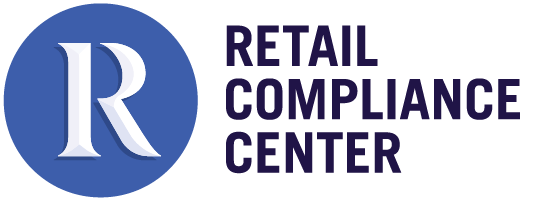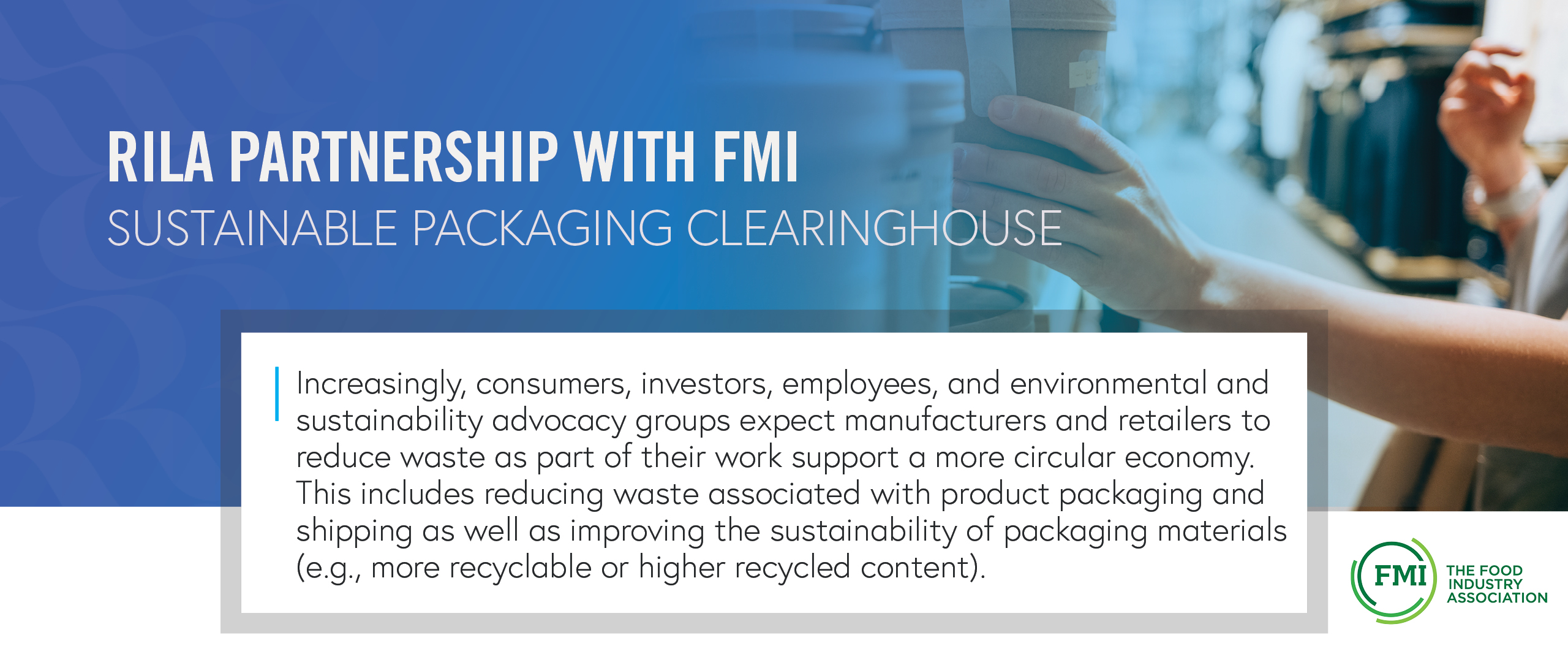- Home
- Retail Compliance Center
- Sustainable Packaging Clearinghouse
Overview
Some states are starting to pass Extended Producer Responsibility statutes and other legislation to reduce waste, help build recycling infrastructure and improve recycling rates. To provide retailers and other relevant stakeholders with current targeted resources related to sustainable packaging, RILA, in partnership with FMI, The Food Industry Association, have created the below Sustainable Packaging Clearinghouse. This Clearinghouse highlights sustainable packaging-related policy, guidance, and trends. Have a suggested resource or edit? Contact erin.hiatt@rila.org.
Legislation
State regulations to reduce and manage waste including single-use plastic bans, fees on certain plastics and packaging, and Extended Producer Responsibility (EPR) programs continue to be proposed and/or passed.
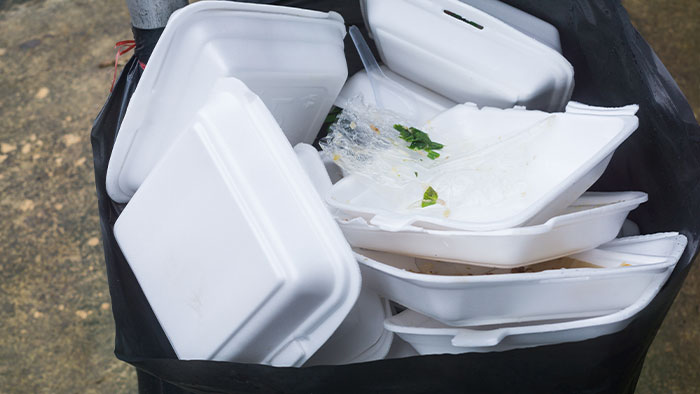
Single-Use Plastic Packaging Reduction Laws
Summary of state-level single-use plastic packaging restrictions across the U.S.
Learn more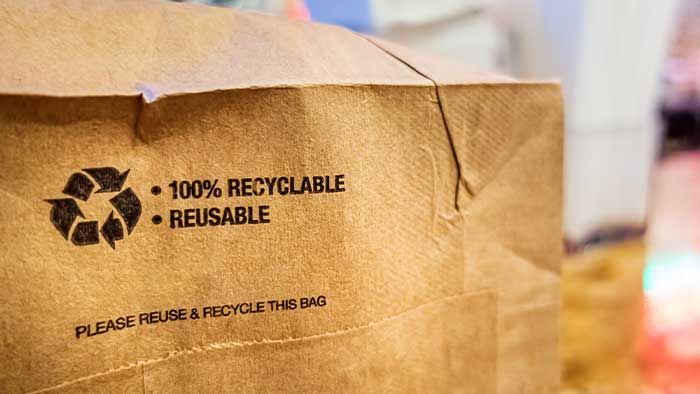
Mandatory Recycled Content Laws for Packaging
Summary of state mandatory recycled content laws for packaging, carryout bags, and trash bags.
Learn morePackaging Guidance
Several organizations have developed resources on sustainable packaging and guidance to help retailers achieve their circular economy goals. The table below includes some of the most common and relevant sustainable packaging guidance. This is not an exhaustive list or an endorsement of the listed organizations.|
Organization |
Resource |
Summary |
Packaging Type |
Sustainability Focus |
|---|---|---|---|---|
|
American Forest and Paper Association |
Design Guide for Recyclability – a resource for paper-based packaging designers |
Guide for members of the paper-based packaging manufacturing supply chain to use in designing and manufacturing packaging to meet customers’ needs in terms of recyclability. |
Paper |
Recyclability |
|
Association of Plastic Recyclers |
Helps package designers measure each aspect of a package design against industry-accepted criteria to ensure that it is truly recycling compatible. |
Plastics |
Recyclability |
|
| Closed Loop Partners |
Key insights and analysis gathered from collaborative reusable bag pilots conducted across select CVS Health, Target and Walmart stores throughout Northern California in 2021. |
Plastics, Cotton |
Reuse, Recyclability, Recycled Content , Reduction, Elimination |
|
| Closed Loop Partners | The Playbook | Highlights effective solutions to reduce the number of bags needed by retailers and encourage the use of reusable bags customers already have at home. | Single-use bags | Elimination, reduction, reuse, |
|
Ellen MacArthur Foundation |
Framework to understand how different reuse models work as well as implementation challenges. Focuses on business-to-consumer (B2C) packaging applications. |
Plastics, steel, aluminum, glass, paper |
Reuse |
|
|
Ellen MacArthur Foundation |
Learning modules to expand understanding of the circular economy for plastic packaging. |
Plastics |
Recyclability, Elimination, Reduction, Recycled Content, Reuse, Compostability |
|
| Ellen MacArthur Foundation | Upstream Innovation: a guide to packaging solutions | Practical guide to help retailers innovate towards achieving their circular economy goals for packaging. Provides tools, facts and case-studies on how to take action on upstream innovation. | Plastics | Elimination, Reuse, Upstream Innovation |
|
FMI |
Guide to assist retailers and their suppliers in better understanding key approaches and considerations recommended to advance toward efficient design, responsible sources, and circular systems for packaging. This resource can be a tool to support internal business operations as well as effective trading partner collaboration to advance sustainable packaging. |
Plastics, Paper, Glass |
Elimination, reduction, recyclability, recycled content, reuse |
|
|
GS1 |
Provides actions to decrease the resources used in packaging and shipment of apparel and general merchandise from suppliers to retailers, retailers to consumers, and suppliers to consumers. Also provides ideas for reducing waste inherent in the use of plastics, and packaging costs, and meeting trading partners’ overall sustainability objectives. |
Polybags, cartons |
Elimination, reduction, recyclability, recycled content, reuse |
|
|
GS1 |
Guide that supports brands and suppliers who are looking to incorporate recycled content in packaging. Provides practical recommendations for strategy and decision making by outlining existing challenges, illuminating areas of opportunity, and dispelling myths about recycled content. |
Plastics, Paper, Paperboard, Corrugate, Glass, Aluminum, Steel |
Recycled content |
|
|
GreenBlue |
Guidance about what recyclability means, and how the How2Recycle program assesses recyclability on a package-by-package basis. |
Plastics, Paper, Paperboard, Corrugate, Glass, Aluminum, Steel |
Recyclability |
|
|
SPC |
Best Practices for Designing Packaging to Prevent and Divert Food Waste |
Guide to help companies reduce food waste happening downstream in their supply chain, at the consumer and retailer levels, by prioritizing food waste prevention and deploying the right packaging designs, formats, and technologies. |
Plastic, paper |
Resealability, compostability, recyclability, recycled content, reduction |
|
SPC |
Design for Recycled Content Guide |
Provides practical recommendations to inform strategy and decision making by outlining existing challenges, illuminating areas of opportunity, and dispelling myths about the use of recycled content.
|
Plastic, paper, glass, aluminum, steel |
Recyclability, recycled content, reuse, reduction |
|
SPC |
Ensuring the Success of Compostable Packaging |
A directory of past and current projects, research efforts, and working groups associated with the more than dozen industry organizations seeking to advance composting infrastructure and compostable packaging. |
Paper, Plastic |
Compostability |
|
SPC |
Guidance for Reusable Packaging |
Synthesize different definitions of reusable packaging, including refillable and returnable packaging, and outline how it compares to single-use packaging; Outline best practices for a successful reuse system and ways to measure success and more. |
Plastics, steel, aluminum, glass, paper |
Reuse, Recyclability, Recycled Content, Compostability |
|
SPC |
Comprehensive overview of the environmental issues surrounding polybags, relevant considerations around system improvements and material choices, and constructive guidance for brand owners, retailers, and their supply chain partners seeking to improve the environmental profile of their system of polybag usage. |
Polybags (on product) |
Elimination, Reduction, Recycled Content, Reuse |
|
|
SPC |
Sustainable Packaging 101s
|
Brief articles on the basics of a variety of core concepts in sustainable packaging. |
Plastics, Paper, Bioplastics, Food, Compostable, Transport and More |
Compostability, Recycled Content, Recyclability |
|
SPC |
SPC Goals Database |
Collection of public industry commitments aimed at improving packaging sustainability. |
Plastics, Paper, Paperboard, Corrugate, Glass, Aluminum, Steel |
Recyclability, Elimination, Reduction, Recycled Content, Reuse, Compostability |
|
SPC |
Understanding the Role of Compostable Packaging in North America |
A framework for understanding the best role for compostable packaging in a sustainable packaging strategy |
Paper, Plastic |
Compostability |
|
The Recycling Partnership |
Tool to help retailers use less plastic, redesign for reuse and recycling, and be part of a circular economy. Analyzes user data to help retailers calculate the circularity of their plastic packaging. |
Plastics |
Elimination, reduction, recyclability, recycled content, reuse, compostability |
|
U.S. Plastics Pact |
PCR Toolkit | Toolkit to assist companies in coverting from virgin plastic to Postconsumer Recycled Content (PCR). | Plastics | Circularity, Recycled Content, Elimination, Reduction |
|
Supplemental guide for retailers setting recyclable packaging and recycled content goals. Provides guidance and ideas for optimizing packages that are potentially recyclable and changing packages that are not recyclable or advancing development to get to a circular economy solution. |
Plastics, Paper, Paperboard, Corrugate, Glass, Aluminum, Steel |
Recycled content |
||
|
World Wildlife Fund |
Tool that helps retailers measure and publicly track the progress of their plastic mitigation efforts, and use these insights to inform the interventions and actions that will maximize impact. | Plastics | Elimination, reduction, recyclability, recycled content |
Tags
-
Sustainability
RILA and FMI Resources
Below are resources that RILA and FMI have developed that touch on sustainable packaging.RILA Communities
Zero Waste Network
Professionals convene to advance management throughout their supply chains to improve diversion & explore collaboration to a more circular economy.
Sustainability Committee
Retail sustainability/CSR executives meet twice per year, plus monthly via conference call, to share leading practices and network.
RILA Resources
Single-Use Plastic Packaging Reduction Laws
Summary of state-level single-use plastic packaging restrictions across the U.S.
Beverage Container Deposit Legislation
Summary of state bottle deposit return legislation in the U.S.
Mandatory Recycling and Disposal Bans Fact Sheet
Overview of state-level recycling regulations and commonly recycled materials such as paper, plastic, metal and glass.
Consumer Bag Legislation Summary Matrix
Summary of consumer bag legislation by state and local jurisdictions, including bans, fees, and specifications for different kinds of allowable bags.
Product Stewardship & EPR Matrix
Summary of state product bans, EPR and product stewardship legislation for packaging and products such as carpet, batteries, electronics, paint and more.
FMI Communities
FMI has a variety of committees and subcommittees related to sustainable packaging. For a full list click here.
FMI Resources
RILA and FMI’s Involvement in Sustainable Packaging
FMI and RILA are members of the Recycling Leadership Council and Recycling Infrastructure Now, a coalition dedicated to encouraging policymakers to make investments needed to upgrade our nation’s aging recycling infrastructure.
RILA is a member of the Recycling Partnership’s Circular Economy Accelerator, which works to solve the challenges facing the U.S. residential recycling system through consensus building and informing and advocating for attainable policy and legislative solutions that rapidly advance the circular economy.
FMI is a Founding Activator of the U.S. Plastics Pact, which will create a unified national framework for a circular economy for plastics, creating structure, coherence, aligned targets, and associated reporting. The food industry is committed to package waste reduction with 41% of FMI members reporting that they already have clear objectives and implementation timeframes in place for package waste reduction and another 34% working on them.
Contact Andy Harig, Vice President – Tax, Trade, Sustainability & Policy Development for information on FMI programs and resources.
Related Sustainable Packaging Resources
Consumer Bag Legislation Summary Matrix
Summary of consumer bag legislation by state and local jurisdictions, including bans, fees, and specifications for different kinds of allowable bags.
Read MoreMandatory Recycling and Disposal Bans Fact Sheet
Overview of state-level recycling regulations and commonly recycled materials such as paper, plastic, metal and glass.
Read MoreBeverage Container Deposit Legislation
Summary of state bottle deposit return legislation in the U.S.
Read MoreLatest Retail Compliance Center Insights

Insights from the 2022 Net Zero Summit
- By [Molly Auten]
- 05/24/2022
LEED Certification for Retail
- By [Kaela Martins]
- 04/18/2022

Join the Department of Energy’s Better Climate Challenge
- 03/01/2022
Retailers Partner with Soles4Souls To Support Communities
- By [Kaela Martins]
- 01/11/2022
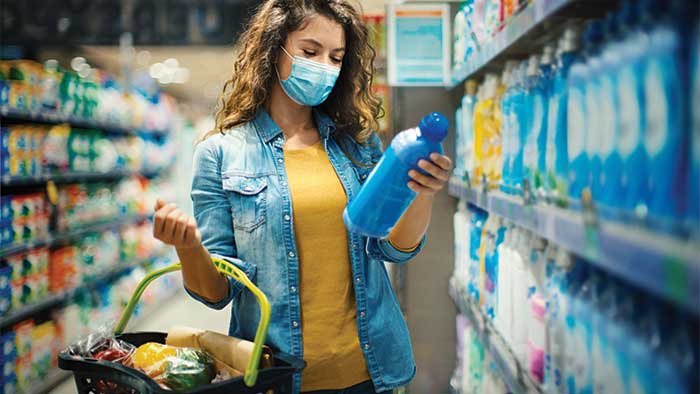
Top Environmental Compliance Retail Trends in 2022
- By [Tiffin Shewmake]
- 12/09/2021
RILA’s First Annual Retailer Environmental Roundtable
- By [Molly Auten]
- 11/30/2021
